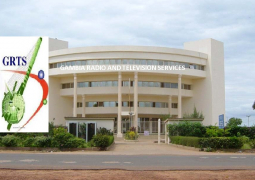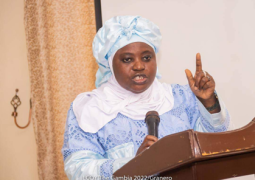
"The Gambia is on a good growth trajectory despite the external shocks of recent years, but structural bottlenecks remain. To unlock its growth potential and improve the living conditions of vulnerable populations, it is essential for The Gambia to pursue and accelerate transformational reforms," said Wilfried A. Kouame, World Bank Senior Economist and Task Team Leader of the project.
This is the first development policy support operation in a new series designed to underpin reforms conducive to resilient and inclusive growth. The program is based on three pillars. The first pillar supports tackling bottlenecks in key enabling sectors by creating the conditions for private sector participation in the energy sector, fostering competition and leveling the playing field in the groundnut sector, and creating the conditions for enabling the use of digital and electronic payments. The second supports reforms to build fiscal space and improve transparency and efficiency in the use of public resources and institutions. The third pillar targets reforms aimed at increasing social and climate resilience, notably through improved disaster risk management framework and the adaptive social protection system, while ensuring that the needs of women and girls are met.
The Gambia ranks 148th out of 181 countries in terms of extreme climate vulnerability. The increasing frequency of floods is having a heavy impact on the population and key sectors. With more than half of the country’s inhabitants living in urban areas and 80 percent of the urban population living within 20 km of the Atlantic coast, expected sea level rise is a major risk. To help The Gambia better prepare financially to meet the immediate needs of natural disasters, this new financing includes a $20 million Catastrophe Deferred Drawdown Option (Cat DDO) that can be fully or partially disbursed in the event of a natural disaster, including public health-related emergencies.
"This financing will enable the government to carry out important reforms to create the fiscal space required for much needed investments in human and physical capital, improve public finance management, and facilitate the development of key sectors. The proposed operation also provides a critical line of contingent financing to support The Gambia in being better financially prepared to respond to immediate needs following a natural catastrophe,” said Feyi Boroffice, World Bank Resident Representative.
This operation has been designed in alignment with the Gambia Recovery-Focused National Development Plan, 2023-2027. The reform program supports the green, resilient, and inclusive development agenda by strengthening the country's adaptation and resilience to climate change through improved prevention, preparedness, and response to climate shocks.





